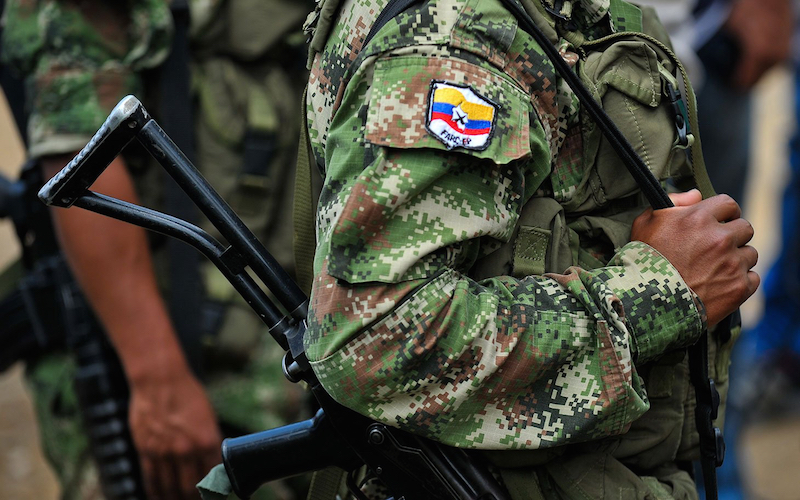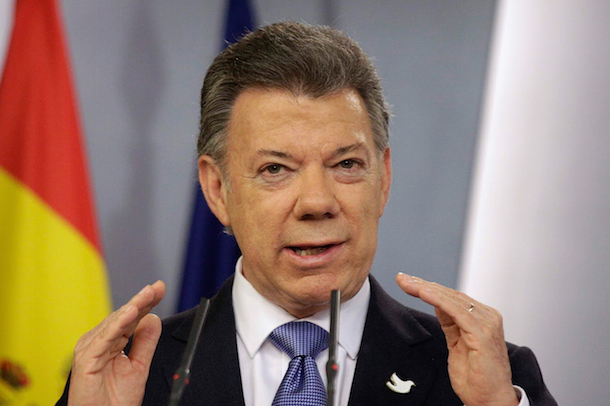
Balancing Hope and Leadership: A Lesson from the Colombian Peace Process
The ability to lead social movements, especially in the face of opposition and uncertainty, goes far beyond appealing to logic alone. Rather, a leader must provide a strategic roadmap for creating change over time, as well as draw upon the hopes and collective experiences of the people the leader hopes to influence. Cornel West has coined this “a leap of hope” that is required for politics and social movements alike.
This type of leadership requires a delicate balance between providing hope that realistic change can be achieved and over promising swift and sweeping change. Over promising can be detrimental to leadership, distancing leaders from the very people they sought to influence and stopping social movements in their tracks. Over promising, in essence, prescribes empty bottles of hope that cannot sustain setbacks and opposition.
Instead of over promising, a leader must be transparent, prepare the public for the long road ahead, and convey that social movements and change unfolds one chapter at a time.
A recent article in Foreign Policy Magazine captured the significance of this delicate balance and the importance of this unique style of hope-based leadership. The article cites Colombian President Juan Manuel Santos and his task to convince an increasingly skeptical Colombia to have hope in the continued peace negotiations between the Colombian government and the Revolutionary Armed Forces of Colombia (FARC).
Colombians have suffered dearly from decades of violence in their country, a conflict rooted in a long-standing history of struggle for economic, political, and human rights. Many have lost land, livelihoods, limbs, and loved ones to the violence, while also living under the daily repression, fear and insecurity that comes from a sustained civil war. Why then, one might ask, would Colombians disapprove of and lose patience with a president trying to bring this conflict to an end?

Perhaps one of the chief obstacles in managing Colombians’ sustained hope in the peace process and the possibility that their country could finally begin to experience peace, was that President Santos over promised. Santos’s chief negotiator, Humberto de la Calle himself, recognized that most Colombians understandably did not believe in a peace process that, as he put it, “was coming to an end, for better or worse.” President Santos made a critical mistake at the beginning of the peace process negotiations, over promising that the negotiations with the FARC would be a matter of months, instead, they have crept along for over three years.
President Santos, by engaging in peace negotiations with the FARC, was essentially proposing a change to the established status quo of enduring violence, stating in a Wall Street Journal editorial, “In my country, no one under age 70 knows what a Colombia completely without violence feels like.” Hope-based leaders, the type of leaders required to inspire and sustain social movements and change the status quo, do not make promises they can’t keep. A key attribute of these types of leaders is that they are able to articulate and sustain a vision of hope through times of challenge, duress, and setbacks, while at the same time communicating to their followers that no matter how difficult things appear, change is possible, but it will evolve one chapter at a time.
The key is for leaders to link one victory or action to the larger vision or story of change and not over promise swift and easy victories, no matter how tempting or how much they think their followers want to hear it. Leaders must leave room for what narrative theorists call narrativity, that is, saying enough, but not too much about what comes next. What is left out of the narrative, such as quick and swift victory in the case of President Santos, is critical to success.
According to narrative theorists, “the ‘unwritten’ part of a well-told story stimulates the audience’s creative participation and identification and invites them to supply what is unspecified yet required.” This is what hope-based leaders such as Gandhi, Vaclev Havel, Nelson Mandela and other champions of successful social movements did, and in the process, they instilled sustained hope in Indians, Czechs, South Africans and countless others. This is critical for Colombia today where polls show Colombians are increasingly impatient with a seemingly endless peace process, while at the same time, they overwhelmingly want the enduring conflict to end.
In order for sustained peace to be realized in Colombia, President Santos must recognize that it’s not just the FARC he needs to bring along. Rather, he is also negotiating writing the next chapter of his country with the Colombian people and for many, a story of continued violence, while not desired, feels more realistic than the over promise or fairy tale of a quick and easy change. A key source of hope, after all, lies in the experience of a credible solution, not one that over promises.

